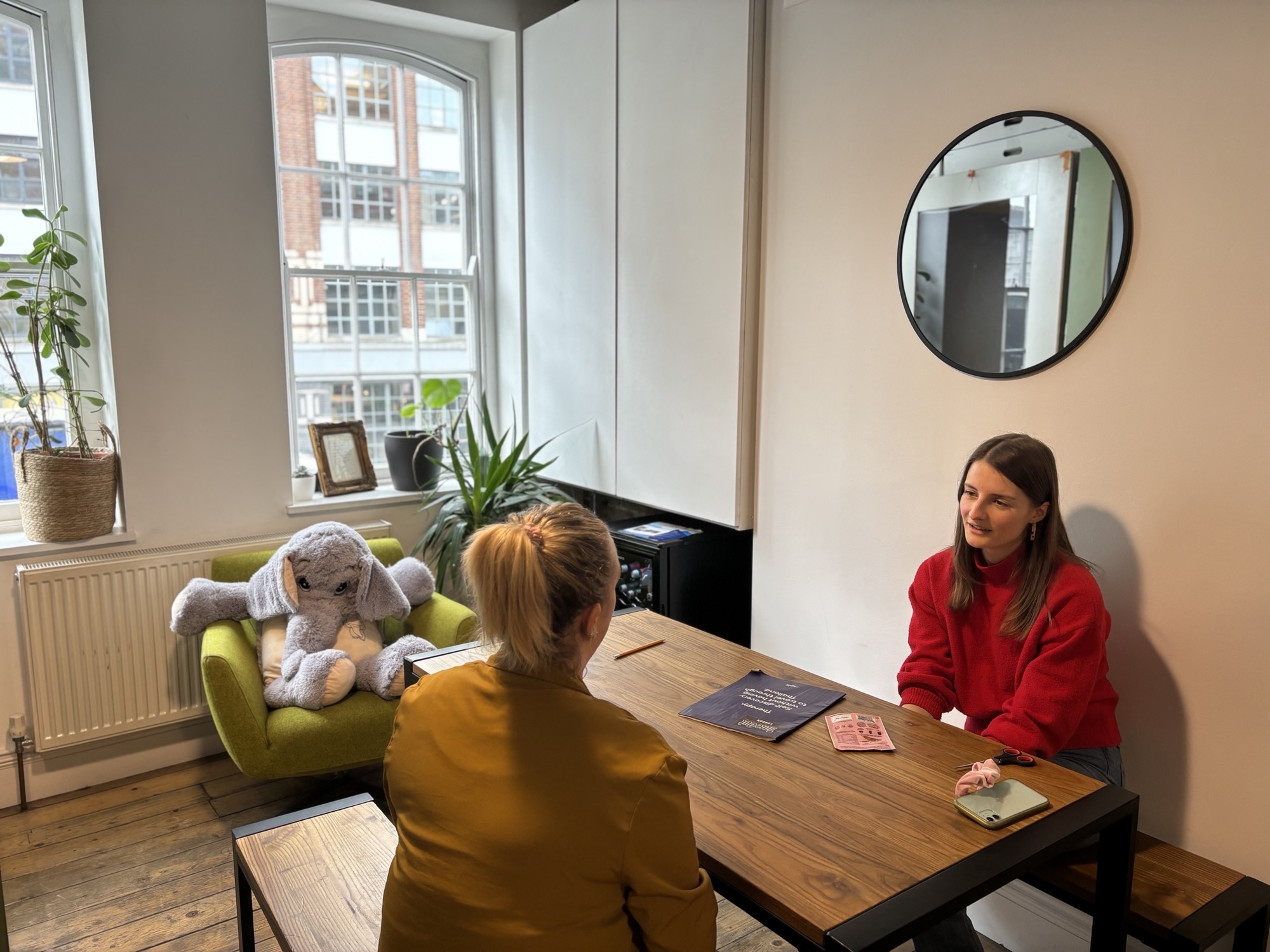A great business is only as good as its people. They can be your superpower, and so when their mental health takes a turn, the repercussions can be massive. Around 17 million working days are lost every year globally because of ill-health caused by work stress, depression, or anxiety.
That’s over 50% of all work-related ill health cases. When you put it like that, it’s no surprise that mental health is high on the agenda of most HR departments and people teams. But helping individuals with their unique challenges can be time-consuming, and often, managers may not be the most qualified person to talk to when it comes to anxiety, grief, or a relationship breakdown that’s affecting their mental health and performance at work.
That’s where Spill comes in. A technology provider that offers high-quality counselling packages, tailored by business owners and people managers for their teams, and accessed through a tech platform where qualified, fully-vetted therapists are waiting to help. We spoke to Anna Turner-Major, VP of Operations at Spill over at their Canvas office on Shoreditch High Street, to understand more about the business, ask whether they practise what they preach, and if selecting the right office space for your business can play a part in shaping work culture.
Hey Anna, thanks for having us over here. Can you tell us a bit more about Spill and what you do for your clients?
Spill is a product that helps directors, founders, HR, and their People teams support their employees' mental health, with our main focus on providing therapy. We care deeply about quality of therapy and so we have a 5-stage hiring process for all our therapists. Once the employer then installs Spill, employees can access therapy with vetted professionals on the Spill platform for free.
So something super relevant in today's world.
Yeah, for sure. The businesses we work with aren’t trying to do a box-ticking exercise. They’re looking to offer their teams something that actually works because they care about their employees. We’ve noticed this even more over the last two years as things have become tougher for businesses and funding for benefits in general has decreased. As a result, businesses have cut anything that’s not being actively used by employees and are looking for value from the services they continue to provide.
And how do you deliver those services?
Customers can create a package for their employees online, either at the team level or on an individual basis. For example, they might offer each member of the team four sessions a year on Spill. The team can then onboard and get started straight away. The shortest amount of time we’ve seen from signing up to an employee booking a session is 7 minutes.
Businesses often come to us because their EAPs (employee assistance programmes) are ultimately inaccessible and sometimes even turn employees away, so ease of access has been a focus for Spill since we started.
How’s the landscape changed from when you started back in 2018?
We were a message-based product for about two years, then in 2020 the product pivoted to talking therapy and started offering video therapy sessions. At the time, there was a tailwind from the pandemic and we saw HR teams getting a clear mandate from their businesses to support employees however they could - and getting budget to do that. Then in the last year or two, we've seen budgets being tightened again and HR teams looking for something more targeted again to make budgets go further.
We've therefore continued to focus on the most impactful kinds of support. That means less time on things like workshops and webinars and more time on ease of access to quality counselling that we have seen to be most impactful way to support employees.
Have you brought these services to your own team?
Yes. Having Spill there as a resource for us to turn to when we feel out of our depth is fantastic. I’m the person who looks after HR at Spill and it's great to have Spill there when I feel like someone can benefit from talking to a mental health professional.
Whenever someone tells me they’ve booked a session it’s such a weight off my mind because I know they’re going to speak to an expert who can provide the professional support they need.
_1.jpeg)
So you’re looking after employee wellbeing as part of your role. Can you tell us more about your role and what you’ve been up to in the last 12-18 months?
When you’re a small team, everyone’s role is very broad. In my role I look after people, finance, legal, and I work on the product. That means talking to customers and prospects and then working with design and engineering to build new features that will improve the product.
In terms of what we’ve worked on over the last 6 months, we’ve focused on building out support for employees going through a life event. If you have someone on the team experiencing a bereavement or having a child they’re going to need quite different support to other members of the team. We’ve been building specialised support packages for these cases.
Being mindful of tighter budgets, we’ve also launched more cost-effective plan options recently including paying for therapy sessions on a pay-as-you-go basis and buying discounted bundles of sessions. We took inspiration from the kinds of plan options you get when you’re buying a phone contract.



